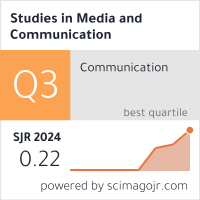Digital Humanities and Game Ethics: Investigating the Impact of Representation in Gaming
Abstract
“Digital humanities” is about the usage of computer-assisted tools to preserve knowledge and disseminate them through technological resources. An extension of these techniques can be seen in today’s hyper realistic games with high-concept storytelling. These games immerse the players in a world that enables them to experience a different reality and often ask them to make choices that have real-life social impact. They have empowered artists to create worlds that could become a testing ground for philosophical theories. This paper concentrates on the impact of gaming on real-world ethical and political questions. This paper primarily focuses on the impact of The Last of Us Part II- an action-adventure game developed by Naughty dog- on the discussion of the inclusion of LGBTQ+ characters on already existing IP (Intellectual Property). The response that the game received among the players can be used to understand the general perspective of these elite communities on LGBTQ+ issues. This paper also includes the positive impact of such inclusion and argues that the diversification of characters in already existing IP substantially contributes to inclusivity and equality.
Full Text:
PDFDOI: https://doi.org/10.11114/smc.v11i7.6266
Refbacks
- There are currently no refbacks.
Studies in Media and Communication ISSN 2325-8071 (Print) ISSN 2325-808X (Online)
Copyright © Redfame Publishing Inc.
To make sure that you can receive messages from us, please add the 'redfame.com' domain to your e-mail 'safe list'. If you do not receive e-mail in your 'inbox', check your 'bulk mail' or 'junk mail' folders.
If you have any questions, please contact: smc@redfame.com
------------------------------------------------------------------------------------------------------------------------------------------------------

